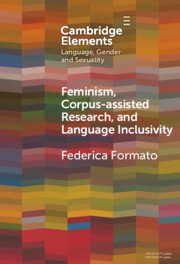The Church of England is currently debating what pronouns to use of God in liturgy. Opinions are strongly established on various sides. This article aims to slow the pace at which strong judgements are arrived at, through four sets of arguments. First, the distinctiveness of English compared with some other European languages and the danger of allowing the contingencies of English pronoun use to dominate the possible meanings of scripture. Second (drawing on the work of Janet Martin Soskice), the complexity of the figure of the fatherhood of God. Third, the significance of German philosophy of language in relation to negative theology and the particular ways in which the inadequacy of language about God has theological consequences. Fourth, a more philosophical discussion of the ways in which what is necessary or possible in one language cannot adequately be conveyed, as necessary or merely possible, in translation.


